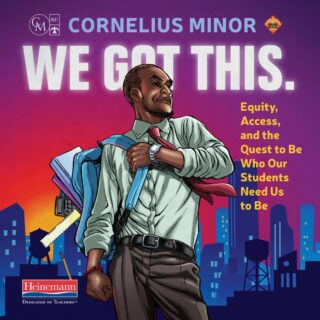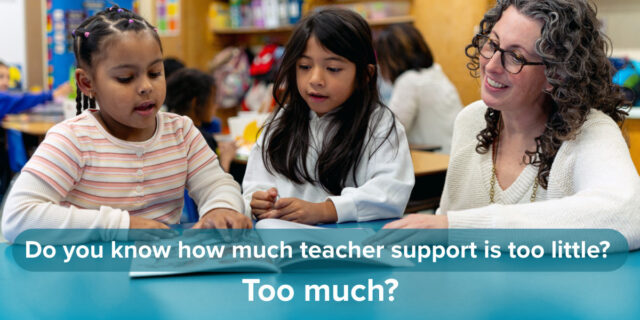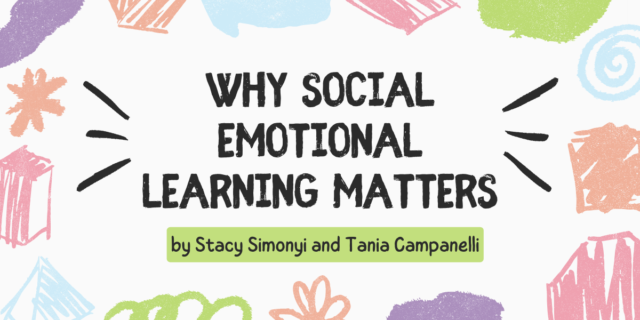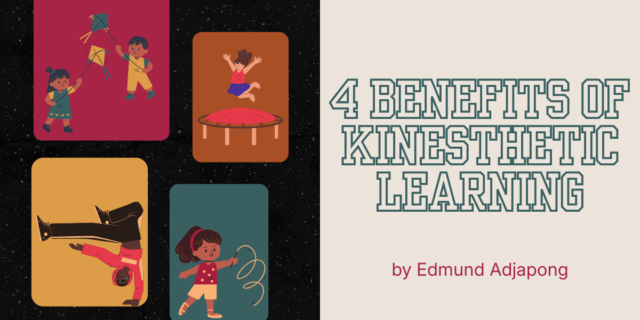

BLOG

As teachers, what we do is as necessary as it is poetic as it is soulful as it is liberating. In teaching we are delicately human. Through teaching we can be powerfully immortal.
But for many of us, it just hurts. Everything hurts. When things hurt, it feels logical to look for the person or thing doing the hurting. In hero terms, we need a bad guy or a supervillain. In education, we have done this. We look to oppressive systems, to testing, to segregationist funding and zoning practices, to ableist notions of what kids can and cannot do. In our worst moments, we blame ourselves or we blame children and their communities.
Though it may feel like it, the supervillain here is not testing or mandates or any of the other things that we often talk about. These are significant problems, but they are simply underbosses—the large regional crooks that keep our attention away from disrupting the foundations of the myriad barriers that stymie our progress. The true masterminds—the real enemies— in this dystopia are the business-as-usual attitudes, binary thinking, and inflexibility with which we have been conditioned to approach these problems. These things have robbed us of our power and of our curiosity. Without them our revolutions die before we can even think to start them.
This impacts teaching because it limits our creativity. In a world of this or that, our very ability to respond to students, their families, and our communities is limited to paths of thinking, speaking, and doing that are prescribed by ideologues who do not know us or the powerful work that we have been called to do.
New teacher. Veteran. Admin. Rural. Suburban. Urban. Even when those words apply to us, they are not all of us. We are so much more than those labels. Each time we accept a label for ourselves or for our work, we are painting ourselves in hues that do not fully match our purpose or our unique ability to fulfill it. Each time we allow ourselves to be defined by a thing, we are implicitly denying the many states of being that are not that thing.
Those labels cannot cover our whole humanity. Neither can those we apply to students—language learner, special education, gifted. All are problematic. As are those that we apply to society at large—woman or man, rural or urban, poor or wealthy, minority or white.
What we name things impacts how we think about them. When we are inflexible in our naming, we become inflexible in our thinking. How often have we been told that “this is the way to reach boys” or that “language learners need this thing.” Such talk is a necessary shorthand. It’s the parlance of our profession, but this cannot be the entirety of our thinking. We need tools to build a bridge between the discourse of our profession and the children that populate the communities that we serve.
When we are inflexible with our approach to school, kids and their families and communities are unheard. This is one of the great evils of modernity. Whole communities are rendered silent simply because we have refused to hear them.
Inflexibly following mandates, curriculum, or educational fads puts us at odds with or robs us of the ability to see nuance, just as doing things as they have always been done or teaching to the test can prevent us from teaching to the children assembled before us. Under this weight, our students become data points; they lose their personhood. We are a profession that talks about students now. We don’t talk about kids anymore.
The antidote to all of this—our teacher superpower—is not some mythical teacher goodness or hyperbolic self-sacrifice. Those things do not exist. Our superpower is listening, and there are several tools, attributes, and strategies that can augment our listening.
The ability to listen will not make teaching easier. It will not take the painful parts away, but listening can give us our children back. If we listen to what children and communities are saying, and we respond accordingly, we can be ourselves again. We can be people. And if we can be people together, we’ll discover that people can make things easier. We are all the answer that we will ever need. We always have been.
You can transform your teaching; your team can transform your school; your school can solve real community problems. If you listen.



